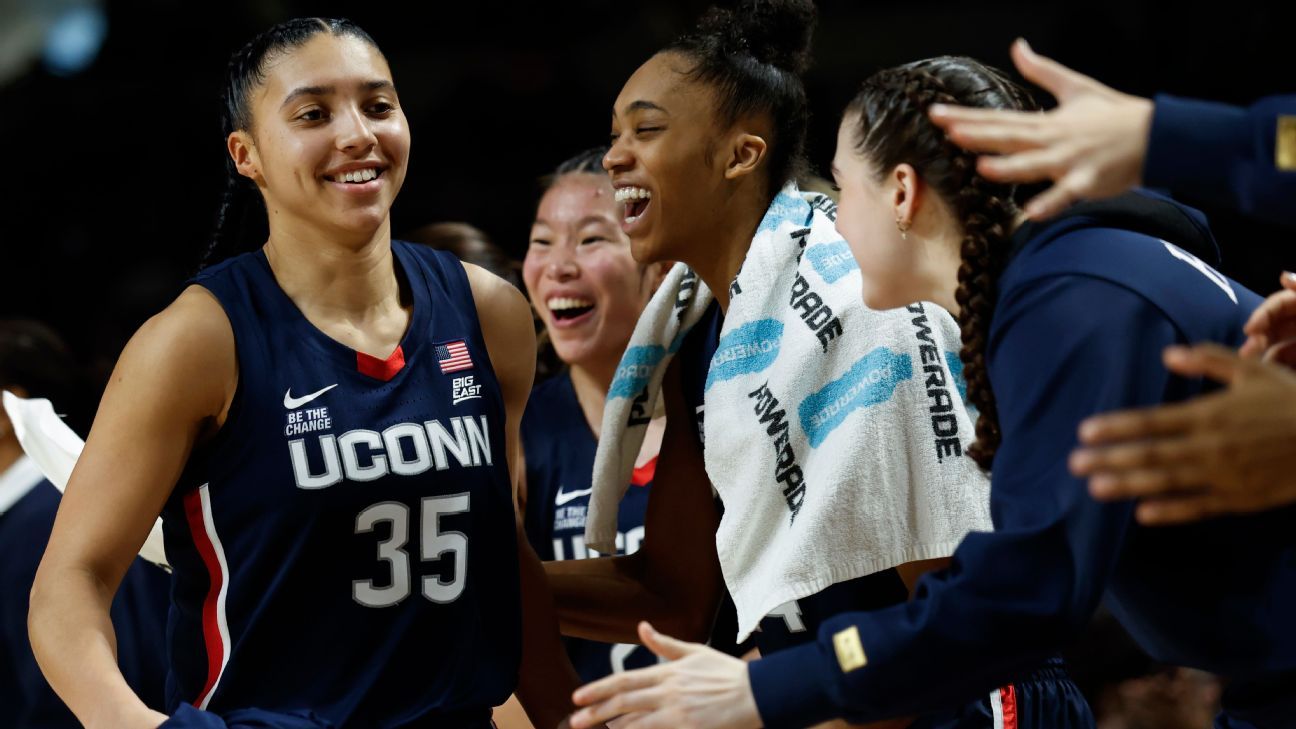
COLUMBIA, S.C. — In a thrilling matchup, Azzi Fudd delivered an impressive performance with 28 points, leading the No. 7 UConn Huskies to a decisive 87-58 victory over No. 4 South Carolina, marking the end of the Gamecocks’ impressive 71-game home winning streak.
Sarah Strong also made significant contributions, scoring 16 points and grabbing 13 rebounds for UConn (24-3), who had previously lost four consecutive games to the Gamecocks. Notably, Paige Bueckers recorded a strong line with 12 points, 10 assists, and 7 rebounds. The Huskies pulled ahead late in the first quarter, leading by 22 points at halftime.
In a surprising turn of events, the reigning champions, South Carolina, were unable to mount a comeback. This loss marks their first home defeat since falling to North Carolina State 54-46 on December 3, 2020, which ended the fourth-longest home winning streak in women’s Division I basketball history.
UConn’s coach, Geno Auriemma, remarked, “This is a great rivalry. It became a rivalry when they started winning. It became a headache for me back home when they started winning, but it became a great rivalry. I think it’s one of the premier games in college basketball right now. It means a lot to a lot of people, which is great.”
Fudd’s stellar outing came after a career-high 34-point game against St. John’s earlier this week. She mastered the three-point shot, hitting six of UConn’s 13 triples, including four in the pivotal third quarter that effectively extinguished any hopes for a South Carolina comeback.
This victory is crucial for the Huskies, especially after a narrow loss to Tennessee (80-76) earlier this month. With Fudd back to her top form, UConn is clearly positioning itself as a strong contender for the championship.
For South Carolina (23-3), Joyce Edwards led the team with 17 points. The Gamecocks, who have undergone a challenging week after a loss to No. 3 Texas, will need to regroup quickly as March draws near, according to coach Dawn Staley.
Auriemma acknowledged the difficulty of playing in South Carolina, stating, “Coming down here is really, really, really hard, and it didn’t used to be a long time ago. And I think they’ve made it really special.”
Contributions from The Associated Press were included in this report.










